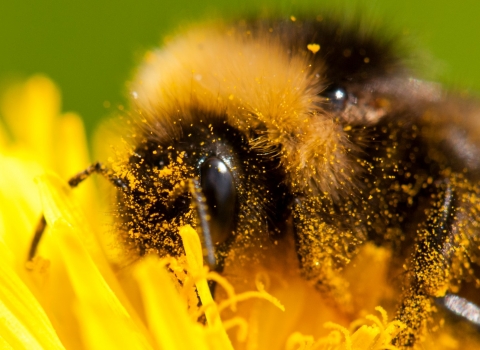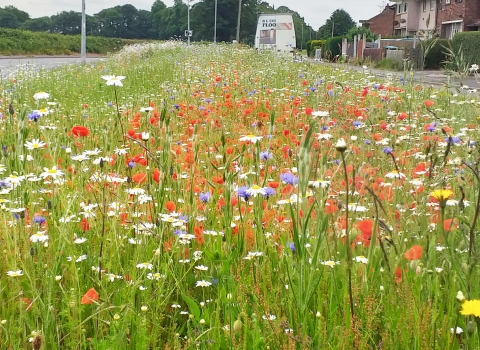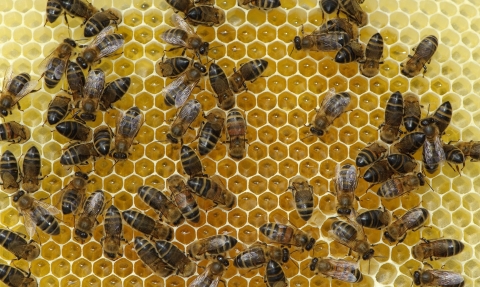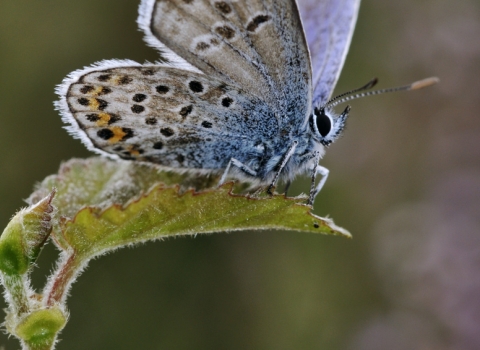We are witnessing the largest extinction event on Earth since the dinosaurs
41% of insect species face extinction. Insects are dying out up to 8 times faster than larger animals.
This is a grave cause for concern – for us, as well as wildlife. Insects pollinate three-quarters of our food crops, as well as being the main food source for many birds, small mammals and fish.
Loss of habitat and overuse of pesticides are two of the major causes of this looming catastrophe. But it’s not too late to act. Insect populations can recover, and we know what needs to be done to save them.
Together, we can create a Wilder Future for insects.

Bumblebee on dandelion © Katrina Martin / 2020VISION
Two actions that will make a real difference:
1. STOP killing insects by reducing your use of pesticides where you live and work
2. START to create more insect-friendly habitats in your garden and local community

Grow your own mini meadow garden Activity Sheet
Grown your own mini garden meadow
Download your activity sheet
Wildflower meadow on the Wrexham Industrial Estate Living Landscape project © Mark Greenhough
Volunteer with us
Join other volunteers and help create insect-friendly habitats near you!
Insect Declines and Why They Matter
This report, by Professor Dave Goulson, summarises some of the best available evidence of insect declines and proposes a comprehensive series of actions that can be taken at all levels of society to recover their diversity and abundance.

Worker European honey bees (Apis mellifera) on honeycomb © Chris Gomersall/2020VISION
Insect Declines and Why They Matter
Make a difference today ...
We want a Nature Recovery Network enshrined in law so that nature has more wild spaces that are bigger and better connected. By making ‘bug hubs’ in your garden to attract insects, your wild patch will become part of the bigger picture – a connected natural world where all wildlife can thrive. Watch our short film with Sir David Attenborough explaining the importance of Nature Recovery Networks.
The Wildlife Trusts play a very important part in protecting our natural heritage. I would encourage anyone who cares about wildlife to join them

